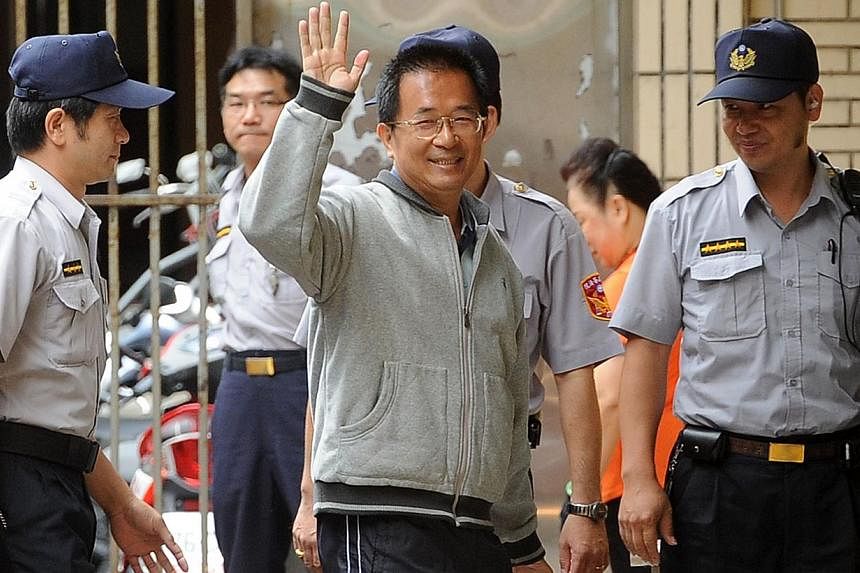TAIPEI (AFP) - Taiwan's ailing ex-leader Chen Shui-bian will be freed from prison on medical parole on Monday, after serving six years for graft relating to his presidency.
Chen, 64, who led Taiwan from 2000 to 2008, will be released from a prison hospital in the afternoon due to his "medical condition", said deputy justice minister Chen Ming-tang. But he will be subject to monthly health checks.
But he will initially be given only one month's parole, with his freedom depending on his state of health. He will then be subject to monthly medical check-ups.
"The (independent) medical team think Chen needs to leave his present location where his medical treatment is not helpful to his condition... so a decision has now been made to parole him for a month," said the deputy justice minister after a parole board meeting on Monday morning.
"He is expected to leave jail this afternoon," he said.
The medical report on Chen was completed on Friday but its delivery to the island's justice ministry was held up in traffic, leading some supporters to criticise the government for delaying his release.
But the deputy justice minister said "no politics was involved in this matter,", as he delivered the parole report on Monday.
The former Democratic Progressive Party (DPP) leader, who ended 50 years of Kuomintang rule when he came to power, was sentenced to life in prison in 2009 for money-laundering and bribery - a term reduced to 20 years after appeals.
Chen was transferred to a prison hospital in April last year after being diagnosed with severe depression, suspected Parkinson's disease and other conditions.
Chen's supporters had recently stepped up their campaign for his early release. His former deputy, Annette Lu, 70, undertook a three-day hunger strike in a tent in central Taipei in December demanding that he be freed.
Chen insists that the charges against him are part of a politically motivated vendetta by the current Kuomintang government in retaliation for his eight years in power when he promoted the idea of Taiwan declaring its independence from China.
As public fears grow over Chinese influence on the island, the Kuomintang was routed in the island's biggest ever local elections in November - seen as a key barometer before the 2016 presidential race.

